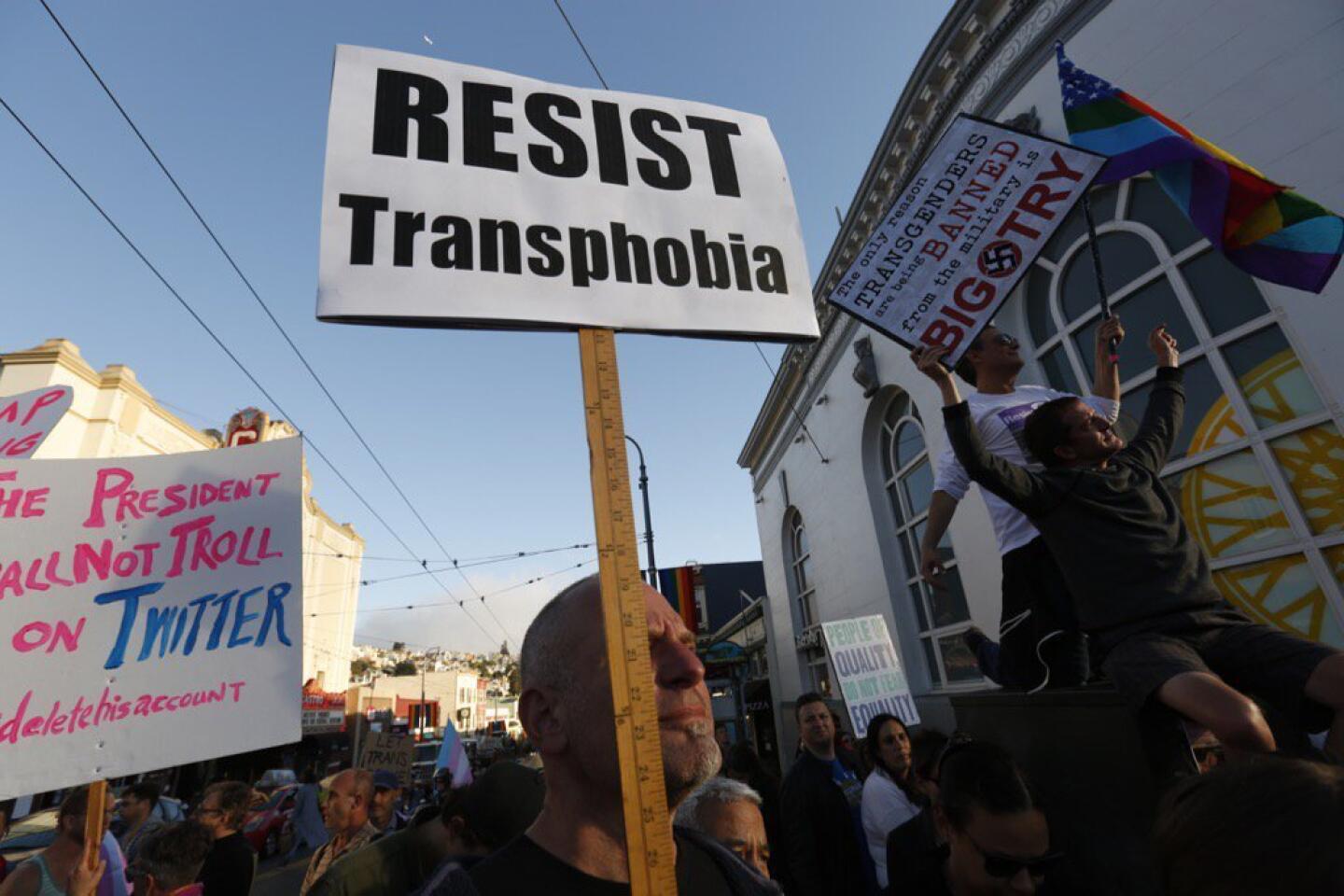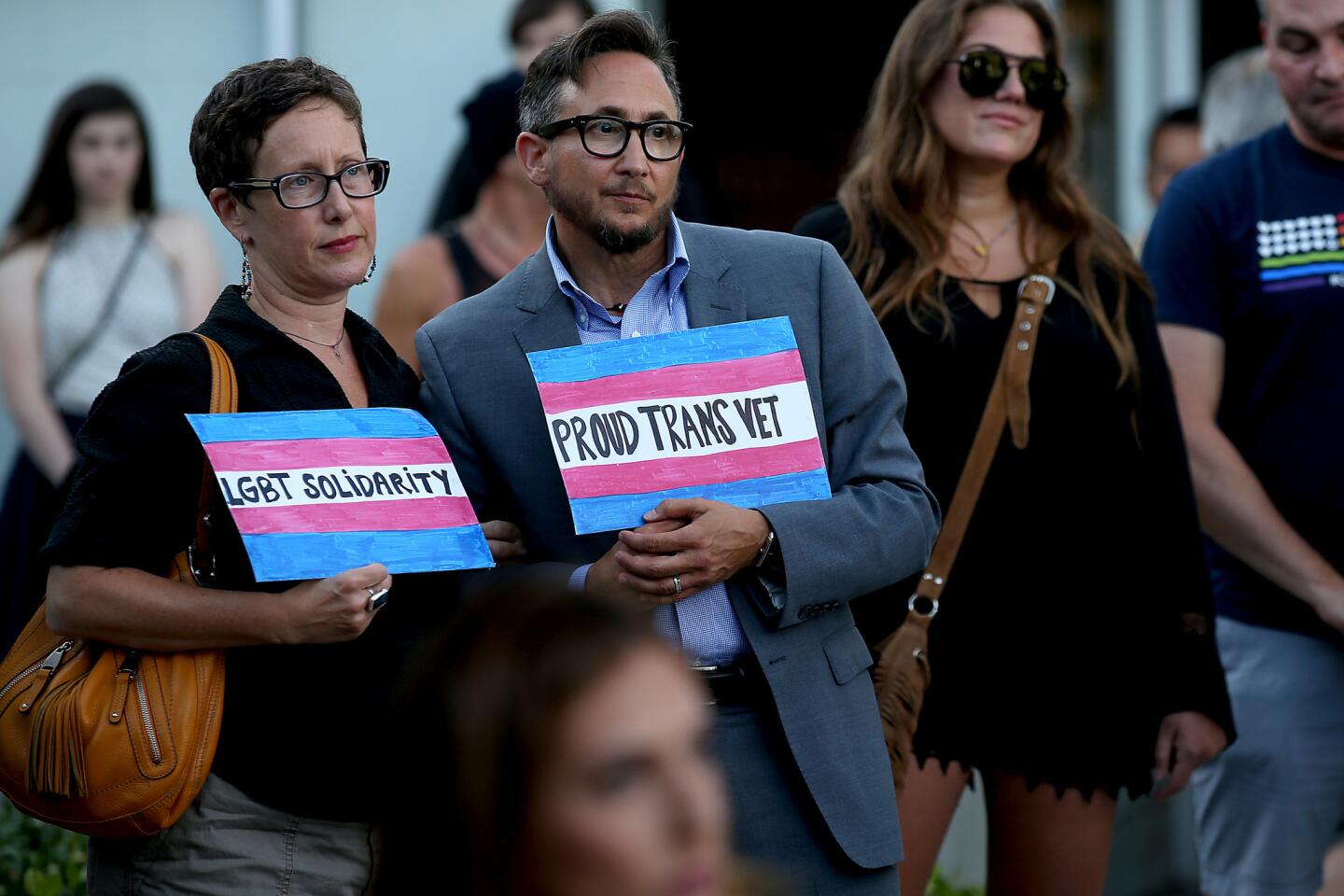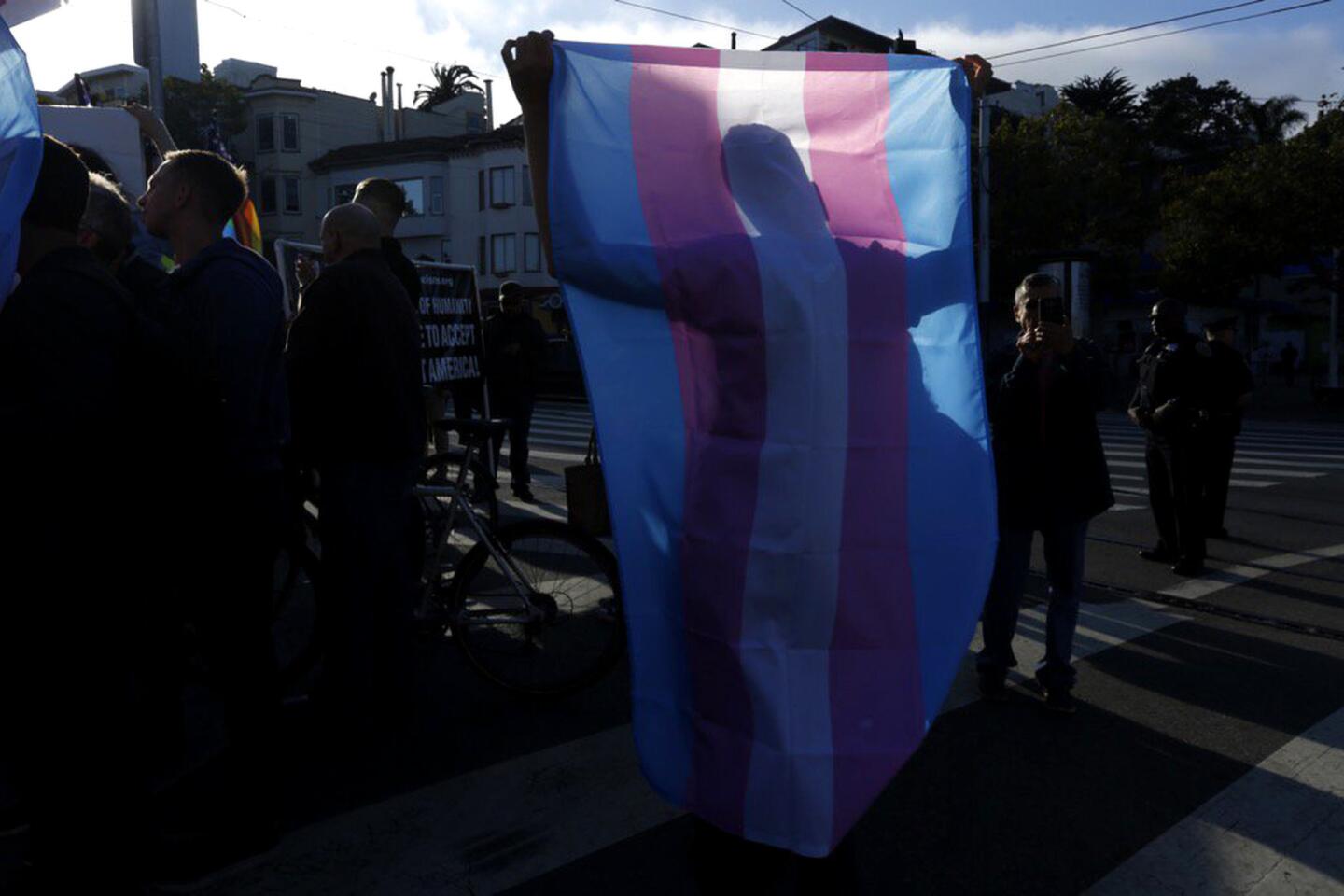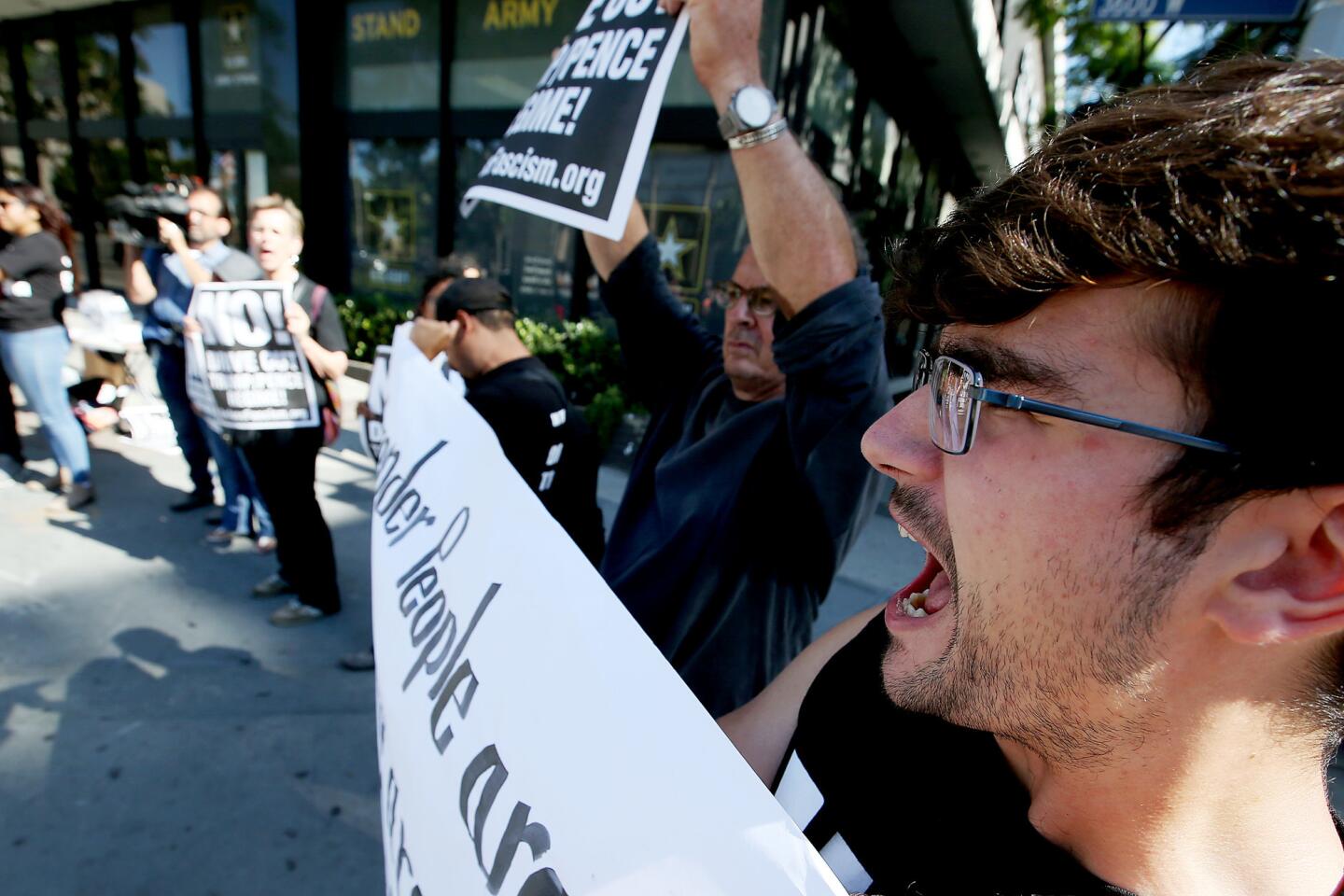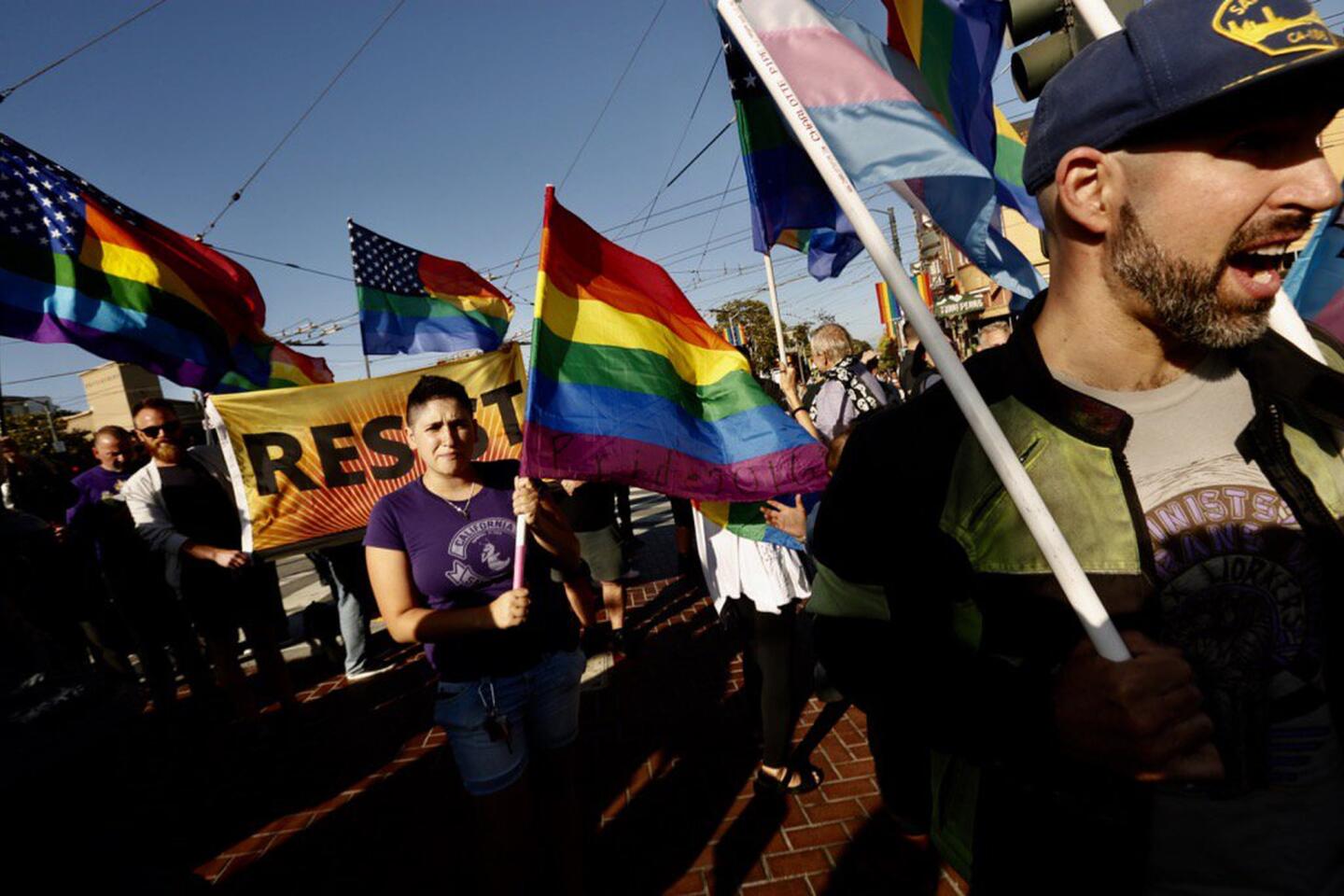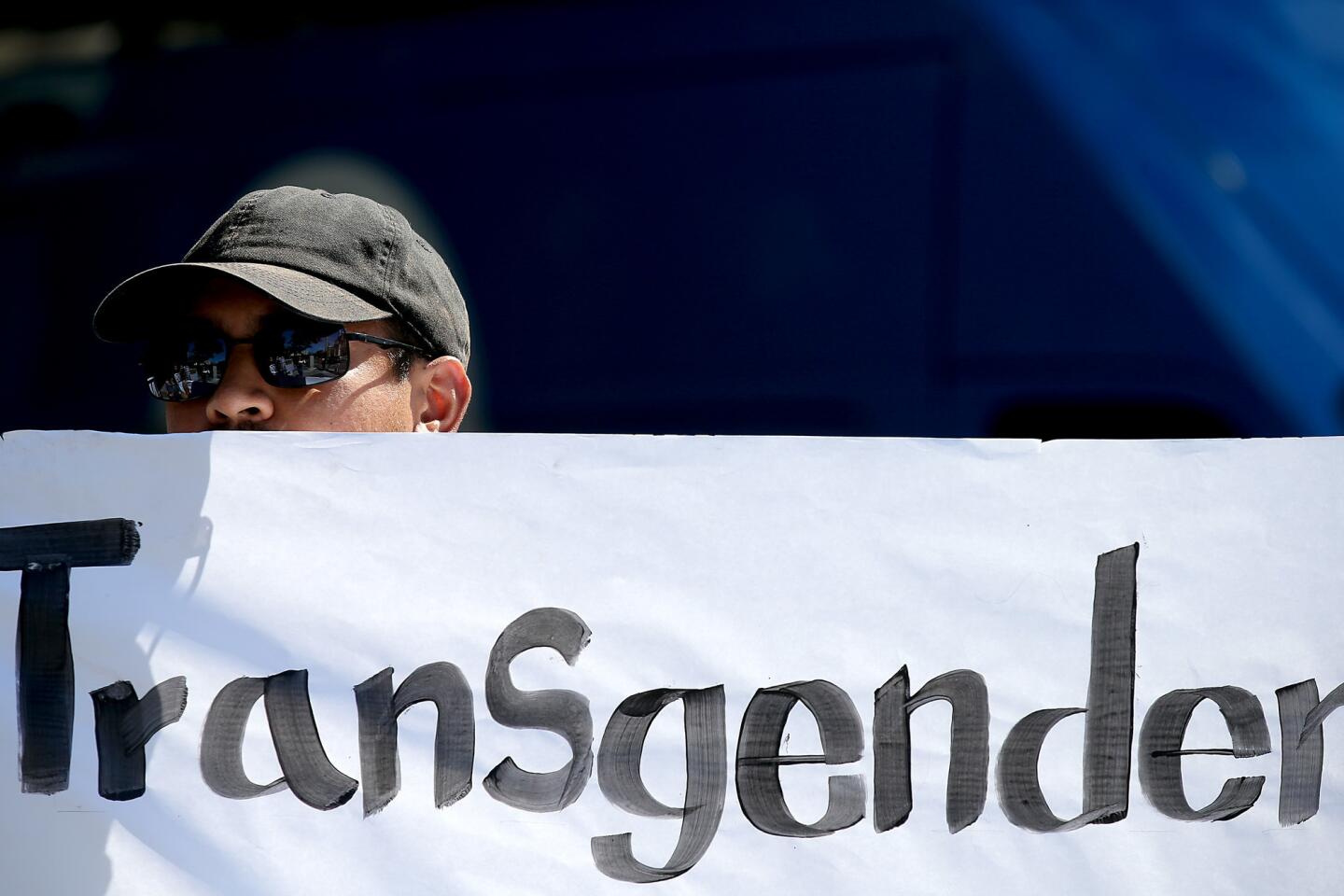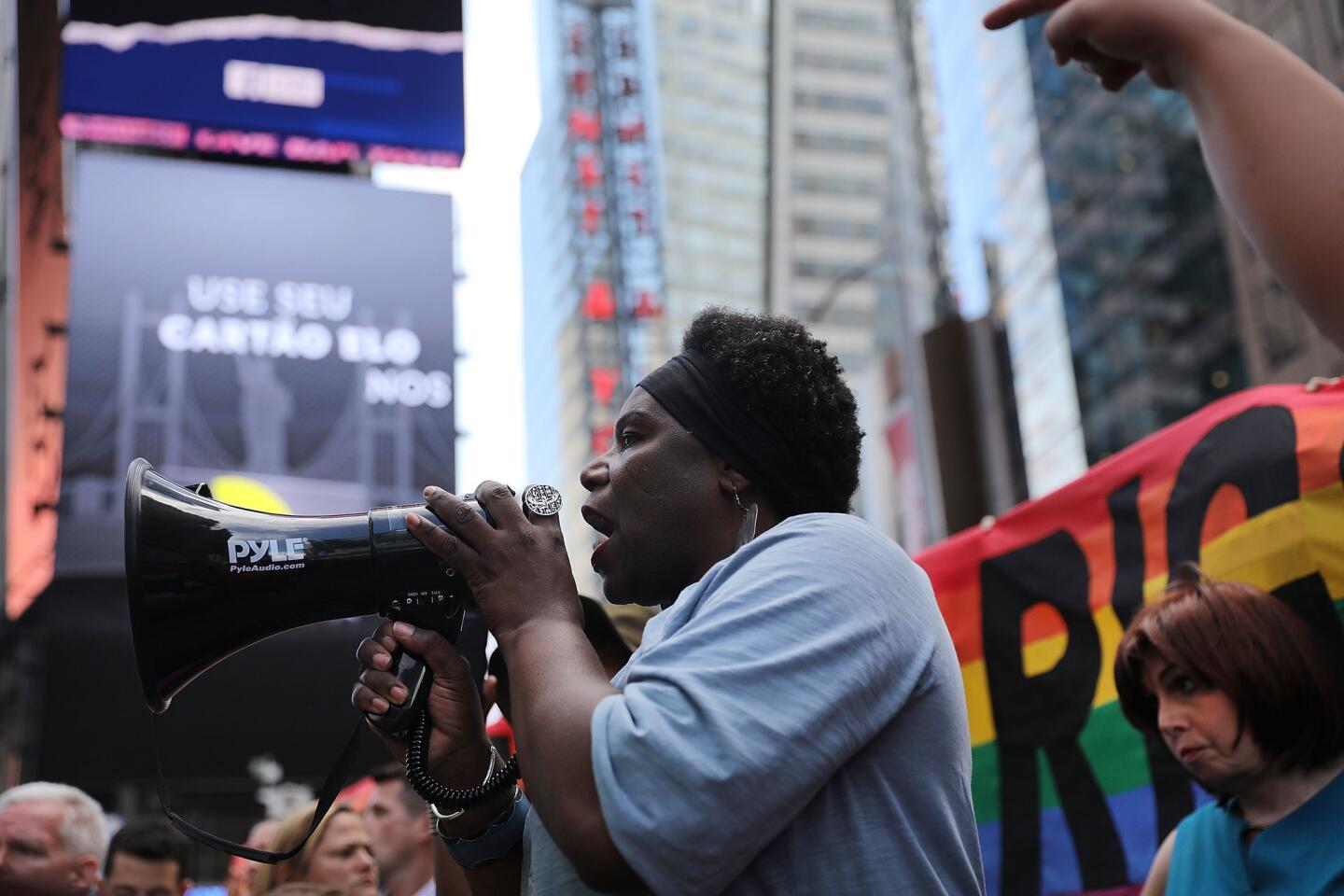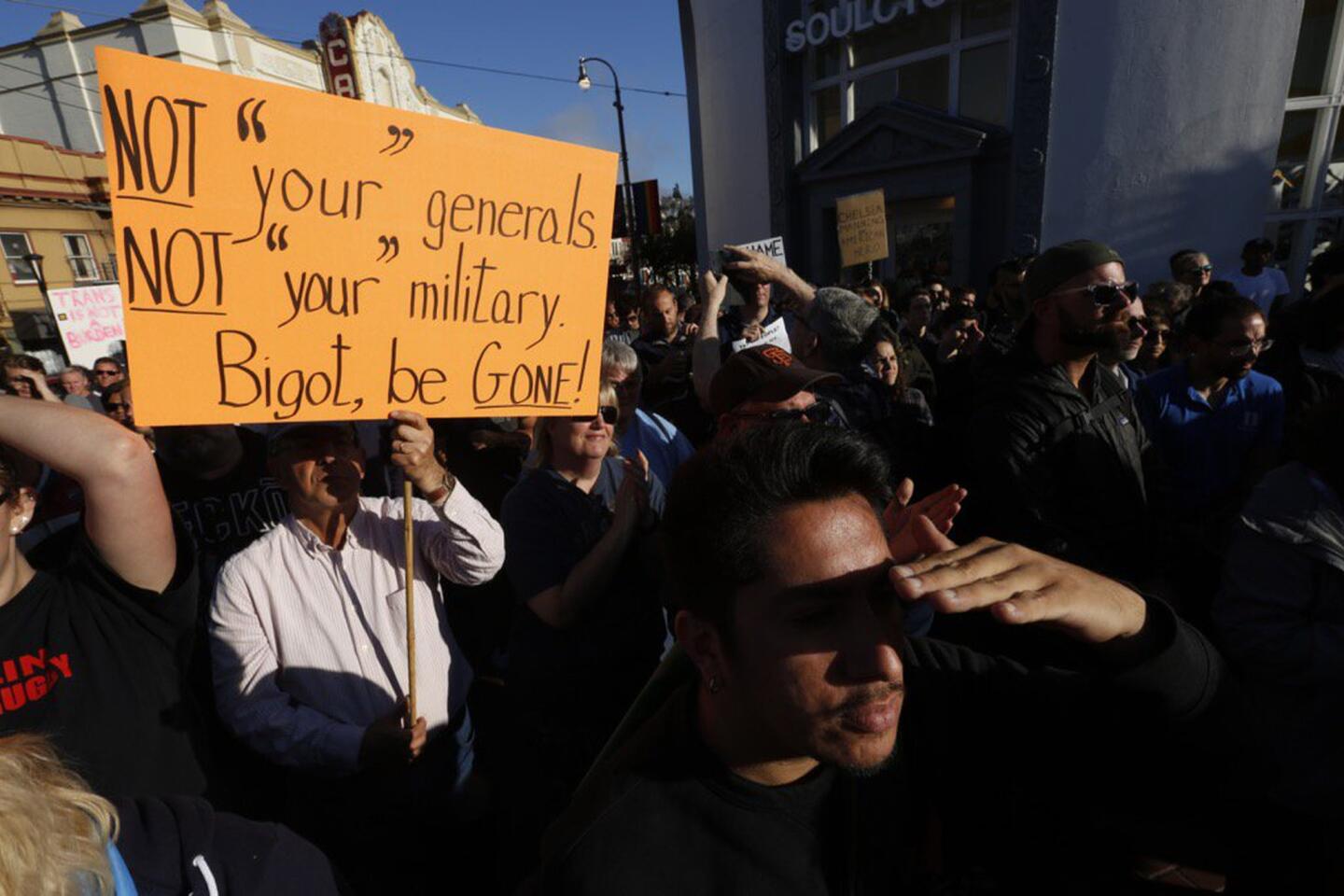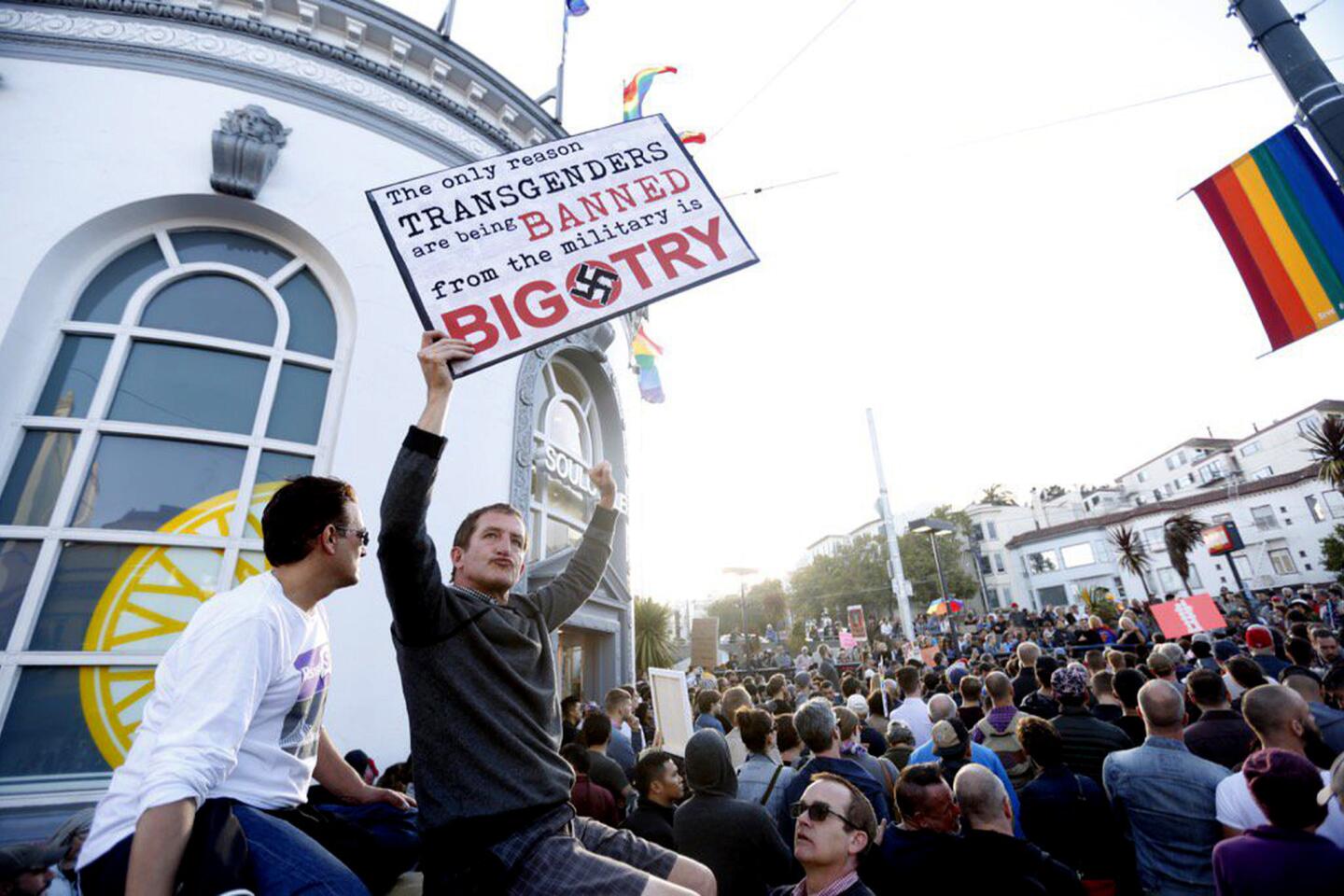Chairman of the Joint Chiefs says Pentagon has not banned transgender service members — for now
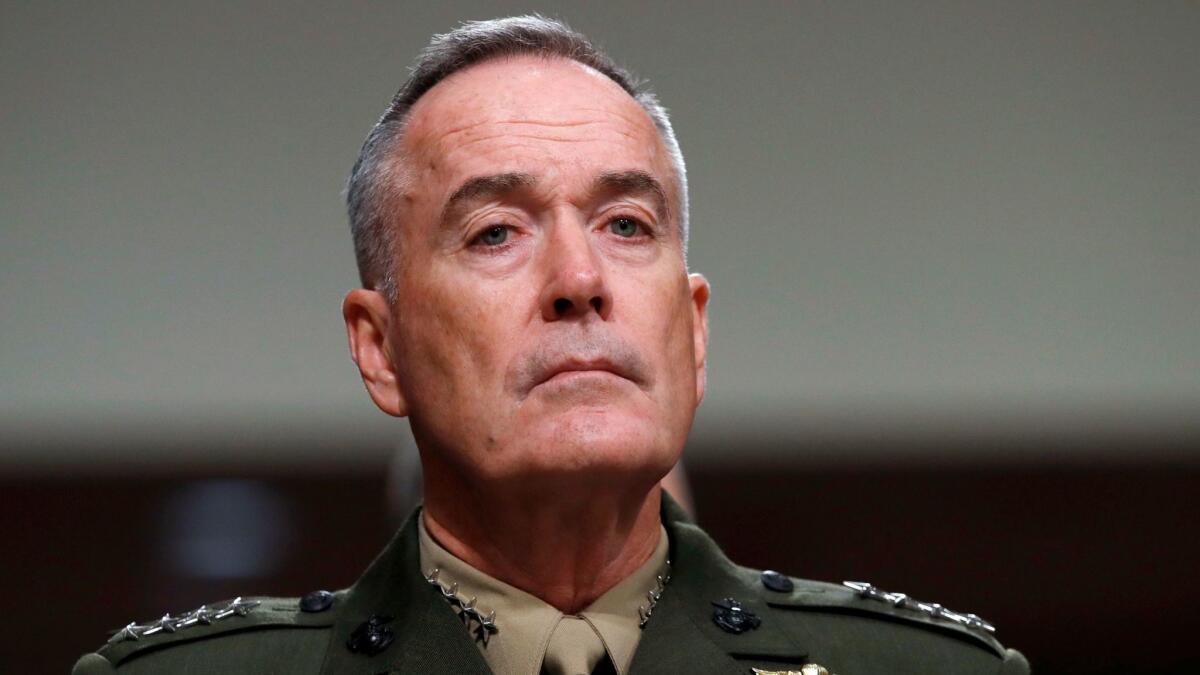
Reporting from Washington — The nation’s highest-ranking military officer said Thursday that the Pentagon has made “no modifications” to the Obama-era policy allowing transgender troops to openly serve in the military, a day after President Trump used social media to declare them banned from the armed forces.
Marine Gen. Joseph F. Dunford Jr., chairman of the Joint Chiefs of Staff, wrote in a memo to commanders and senior enlisted leaders of the Army, Navy, Air Force and Marines that the military would continue to “treat all of our personnel with respect.”
Dunford said Pentagon policy on transgender troops would not change until the White House has issued Trump’s directive to Secretary of Defense James N. Mattis through formal channels — not on Twitter — and the secretary’s office issues guidance on implementation to the service chiefs.
The memo voiced neither support for nor opposition to Trump’s decision, and appeared intended to calm widespread confusion and concern at the Pentagon, which was blindsided when Trump abruptly declared early Wednesday on Twitter that the military would not “accept or allow” transgender troops to serve “in any capacity.”
Dunford’s brief memo did not answer the question of when, how and whether the Pentagon would reimpose gender-based discrimination, and what would happen to thousands of transgender troops, including many deployed overseas, now in the armed forces.
Dunford’s memo sought to allay those fears, at least for the short term.
“There will be no modifications to the current policy until the President’s direction has been received by the Secretary of Defense and the Secretary has issued implementation guidance,” he wrote.
“In the meantime, we will continue to treat all of our personnel with respect,” he added. “As importantly, given the current fight and the challenges we face, we will all remain focused on accomplishing our assigned missions.”
A change of U.S. military policy is typically subject to months, if not years, of study and legal vetting before it’s rolled out. In this case, Trump told Mattis on Tuesday, a day before he put out the decision on Twitter.
Army Chief of Staff Mark Milley told reporters Thursday that he learned about Trump’s transgender ban on TV.
Pentagon spokeswoman Dana W. White said the Defense Department is still “awaiting formal guidance from the White House” and would “focus on our mission of defending our nation and ongoing operations against our foes, while ensuring all service members are treated with respect.”
If implemented, the president’s directive would reverse a year-old policy that allowed transgender soldiers to openly serve for the first time in the active-duty force and the reserves. It also allowed them to seek gender reassignment surgery, hormone therapy and other treatments at military hospitals.
Trump’s surprise announcement not only marked a retreat for the Pentagon’s effort to drop discriminatory hurdles. It was an about-face for Trump, who had repeatedly vowed during the presidential campaign to support gay, lesbian, bisexual and transgender people.
But the decision appealed to social conservatives, including some House Republicans who were threatening to block a $790-billion defense and security spending bill because it contained money for the Pentagon to pay for medical treatment related to gender transition.
Trump’s decision went further by appearing to also preempt an ongoing Pentagon study on whether to allow openly transgender people to enlist. The military was expected to begin that process on July 1, but Mattis approved a six-month delay on June 30.
In his tweets, Trump said he had decided to bar transgender troops because the military “cannot be burdened with the tremendous medical costs and disruption that transgender in the military would entail.”
Neither claim appeared accurate. The expected medical costs are negligible and transgender troops have served openly for the last year without disruption.
A Rand Corp. study commissioned by the Pentagon last year concluded that allowing transgender troops to serve openly would cost an extra $2.4 million to $8.4 million a year in military healthcare costs, a miniscule fraction of Pentagon spending.
The study also predicted “little or no impact on unit cohesion, operational effectiveness or readiness” by letting transgender troops openly serve.
Trump’s declaration drew rebuke from many war veterans and LGBT advocacy groups, who vowed to challenge the president in federal court if self-identified transgender service members are forced out of the military.
More than 20 years ago, the Supreme Court said the government may not openly discriminate against gays and lesbians. And since then, the courts have repeatedly said the Constitution’s guarantee of “equal protection of the laws” forbids such discrimination.
In the past, Pentagon lawyers had argued that the courts should defer to the military when deciding who could serve in the armed forces. But those arguments would carry little weight now since the Defense Department has encouraged gays, lesbians and transgender Americans to join its ranks.
A legal ban on transgender troops could also be challenged as a violation of the 1964 Civil Rights Act, which forbids employers from discriminating based on race, sex or religion.
But on Wednesday, the Trump administration urged a federal appeals court to rule squarely that this prohibition does not extend to “sexual orientation.”
Justice Department lawyers argued that Congress has refused to broaden the federal employment law to protect gays and lesbians, although California and more than 20 other states have adopted such anti-discrimination protections.
The Supreme Court is likely to take up the issue in the next year. Though most federal courts have said the 1964 law does not cover sexual orientation, the 7th Circuit Court of Appeals in Chicago recently ruled in favor of a lesbian in a job discrimination case. The high court is likely to weigh in on the disagreement early next year.
Twitter: @wjhenn
ALSO
Editorial: Trump’s transgender tweet wasn’t just the usual morning rant; it’s dangerously bad policy
Tech firms criticize Trump’s call for a transgender military ban
Decision on transgender people in military has a ‘cart before horse feel,’ Times analyst says
More to Read
Sign up for Essential California
The most important California stories and recommendations in your inbox every morning.
You may occasionally receive promotional content from the Los Angeles Times.
